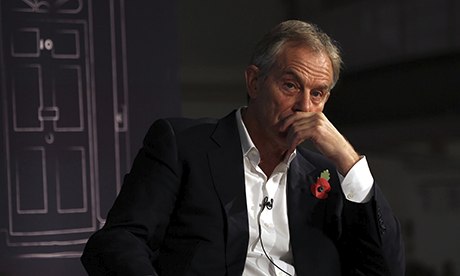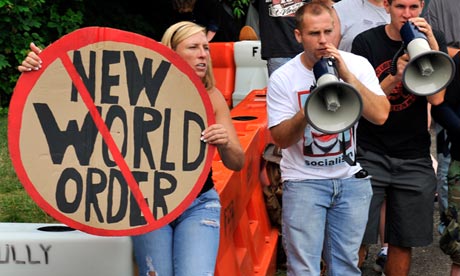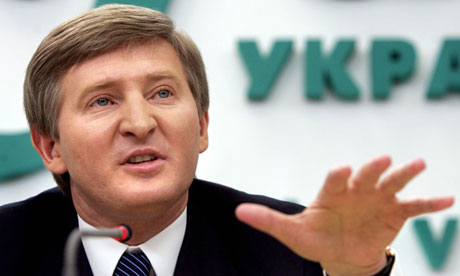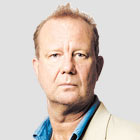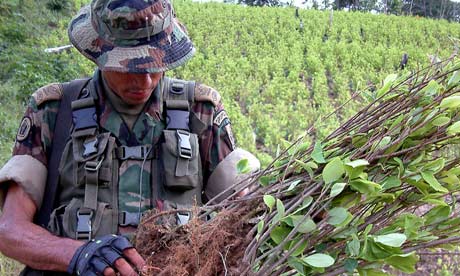HSBC bank has written to Finsbury Park Mosque and other Muslim organisations and individuals in the UK to tell them that their accounts will be closed.
The reason given in some cases was that to continue providing services would be outside the bank's "risk appetite".
The wife and teenage children of a man who runs a London based Islamic think-tank have also been contacted.
HSBC said decisions to close accounts were "absolutely not based on race or religion".
"We do not discuss relationships we may or may not have with a customer, nor confirm whether an individual or business is, or has been a customer.
"Discrimination against customers on grounds of race or religion is immoral, unacceptable and illegal, and HSBC has comprehensive rules and policies in place to ensure race or religion are never factors in banking decisions."
No chance
Finsbury Park Mosque in North London was written to by HSBC on 22 July.
The only reason given for the intention to close its account was that "the provision of banking services… now falls outside of our risk appetite".
In the letter, the bank notifies the treasurer of the mosque that it will close the account on 22 September.
Khalid Oumar, one of the trustees of the mosque, questioned the motives behind the letters.
"The letters that have been sent and the letters that we received do not give any reason why the accounts were closed in the first place," he said.
"That has led us to believe that the only reason this has happened is because of an Islamophobic campaign targeting Muslim charities in the UK."
'Astonishing'The mosque's chairman Mohammed Kozbar told the BBC: "The bank didn't even contact us beforehand. Didn't give us a chance even to address [their] concerns.
"For us it is astonishing - we are a charity operating in the UK, all our operations are here in the UK and we don't transfer any money out of the UK. All our operations are funded from funds within the UK."
Until 2005, the mosque was run by Abu Hamza, who in May this year was convicted of terrorism offences in the United States.
"The positive work we have done since taking over over from Abu Hamza to change the image of the mosque, there is nothing really that can explain [HSBC's decision]," says Mr Kozbar.
"They have put us now in a very, very difficult situation - this is the only account we have."
Mr Kozbar says HSBC's decision could have negative repercussions for the bank.
"We are sure that our community will be frustrated, and might consider closing their accounts themselves with HSBC if the bank doesn't reopen our account, or at least give us an explanation."
Jeremy Corbyn, the local MP for Finsbury Park, says he has worked with the mosque ever since it was built.
"Over the past 10 years, it has developed into a superb example of a community mosque supporting local people and providing facilities for all faiths if they need it.
"I am shocked and appalled at the decision of HSBC."
'Unsettling'
Anas Al Tikriti was born in Baghdad, but has lived in the UK for several decades. His family has also received letters. He runs the Cordoba Foundation, a think tank on Islamic issues set up in 2005 in order to address, he says, the relationship between Europe and the Middle East.
He, his wife, his 16- and 12-year-old sons all received separate letters this week from HSBC informing them that their accounts would be closed in September. This time, no reason was given.
Mr Al Tikriti says he has banked with HSBC since the 1980s and has rarely been overdrawn.
"It is unsettling. I am not used to being addressed in those terms. It's like I have done something wrong. The involvement of my family disturbs me. Why the entire family?"
"I can only speculate - and I wish someone from the bank could explain [why the accounts were closed]. The organisations are mainly charities and the link is that many of them if not all of them are vocal on the issue of Palestine."
"It would be a great shame if that was true. As I'm left to speculate, that's the only reason I can come to."
His think tank, the Cordoba Foundation, which also banks with HSBC, was also told that its account will close, with an almost identical letter to that sent to the Finsbury Park Mosque, and dated the same day.
'Alternative arrangements'
Ummah Welfare trust, based in Bolton, has distributed £70m to projects in 20 countries. It has had a presence in Gaza for 10 years.
In a letter, also dated 22 July, HSBC gave Ummah the same reason for closing its account that it had given to the Finsbury Park Mosque - that "provision of banking services now falls outside our risk appetite".
It then gave the charity two months' notice of its decision to close the trust's accounts.
"You will need to make alternative banking arrangements, as we are not prepared to open another account for you," the letter continues.
Mohammed Ahmad, who runs Ummah, says it is a dream customer for a bank and always in credit.
He asked HSBC in a meeting why the accounts were closing, but says the bank's representative gave them no answer.
Mr Ahmad says that they "have always tried to work within a legal framework and accommodate banks, if, for example, there was an issue with sanctions".
Mr Ahmad says he thinks HSBC has made its decision because of its work in Gaza, where he says Ummah provides "ambulances, food aid, medical aid, and grants."
"We make sure we go out of the way to work with organisations that are non-partisan. What we do now is we do a check on Thomson Reuters and make sure that there is no link whatsoever with blacklisted organisations. We don't want to damage our relief efforts. We have tried our best to be non-partisan as much as possible."
A government official the BBC spoke to said they did not believe this was the result of government action but reflected a decision the bank had taken itself based on its own risk analysis.
In December 2012, HSBC had to pay US authorities $1.9bn (£1.2bn) in a settlement over money laundering, the largest paid in such a case. It was alleged to have helped launder money belonging to drug cartels and states under US sanctions.
In August last year, it was reported that HSBC asked more than 40 embassies, consulates and High Commissions in the UK to close their accounts. At the time, the bank said "HSBC has been applying a rolling programme of "five filter" assessments to all its businesses since May 2011, and our services for embassies are no exception."
The Charities Commission has confirmed that it is not investigating any of the organisations involved and says that if the charities don't have a relationship with bank it could harm public trust in their work.

